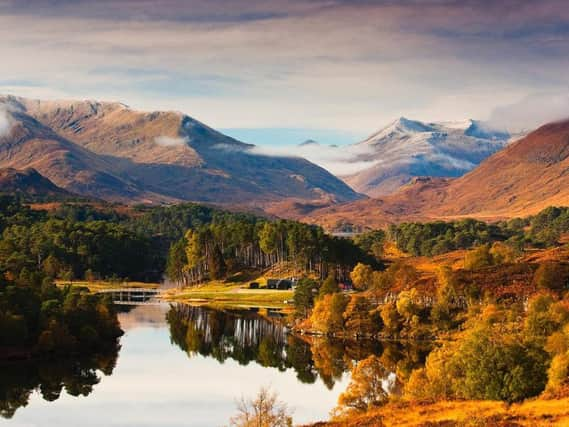22 million trees planted in Scotland to help meet 'global climate emergency'


The new trees cover 11,200 hectares of countryside with more trees planted in Scotland than anywhere else in the UK.
Figures show that 84 per cent of all new planting took place north of the border. Of the new trees planted, around 40 per cent are broadleaves which support greater biodiversity than traditional plantations of conifers.
Advertisement
Hide AdAdvertisement
Hide AdThe planting has comfortably outstripped the 10,000 hectare target set by the Scottish Government for new trees in the ground.
Rural economy secretary Fergus Ewing said: “This is fantastic news that we’ve smashed the targets. It is testament to the Scottish Government making forestry a priority and investing and helping growing the industry.
“The whole tree planting effort has truly been a national endeavour with all forestry interests, both large and small, pulling together.
“With an increase in tree planting in the pipeline, it is now more important than ever to make sure the right trees are planted in the right places.
“A new approach to woodland creation proposals was introduced last year and whilst this has helped us deliver the target, it also ensures that communities and interest groups are consulted along the way.
“But there is also a huge environmental significance to the increase in tree planting. We are now facing a global environment emergency.
“In Scotland alone, around 9.5 million tonnes of CO2 each year are removed from the atmosphere by our forests – this is a clear example of why an increase in tree planting is so important in the fight against climate change.”
The overwhelming majority of new trees were planted by private enterprise with the Scottish Government setting aside £46m last year to subsidise new forestry schemes.
Advertisement
Hide AdAdvertisement
Hide AdTrees that are harvested will go to wood processors producing a range of wood products, including sawn timber, composite boards, paper, pallets, biomass and bark. Cnstruction is the largest market.
Conifers planted last year will be harvested in around 30 to 50 years with brodleaves in the ground for anywhere between 80 to 150 years.
The Scottish Government, as part of their climate change commitments, has already upped the planting targets for the future, rising to 15,000 ha a year from 2024/25.
At present. Scotland's forests cover just under 19 per cent of the total land mass area with this due to increase to 21 % by 2032.
Stuart Goodall, Chief Executive of Confor, which represents the forestry and wood processing sector, said: "I’m really pleased we’ve hit our planting targets in Scotland.
"This is great news for the sector, but also for all Scotland now that the First Minister has announced a climate emergency.
"Planting trees locks up carbon and by harvesting and replanting them sustainably, we can produce an infinitely renewable supply of wood with which to build homes and to manufacture an array of everyday products - while also reducing carbon in the atmosphere.
"Scotland is leading the way in the UK, with 84 per cent of all new planting happening in Scotland. Confor has worked long and hard with the Scottish Government to get to this point and I truly hope the momentum will be maintained in the coming years. We now need the rest of the UK to move beyond ramped-up rhetoric on a climate emergency and begin to take the positive action that we see in Scotland."
Advertisement
Hide AdAdvertisement
Hide AdDr Sam Gardner, deputy director at WWF Scotland added: “Woodlands will play an increasingly important role in capturing carbon and reducing Scotland’s contribution to climate change. These statistics show that Scotland can not only meet its own targets, while also making a significant contribution to the UK’s response to the climate emergency.
“We need to ramp up these efforts to meet the scale of the challenge but do so in a sustainable and integrated way, capturing carbon and delivering nature rich productive woodlands.”
Carol Evans, Director of Woodland Trust Scotland said Scotland has been "ahead of the curve" in recognising the role trees can play in soaking up carbon is also becoming more generally recognised.